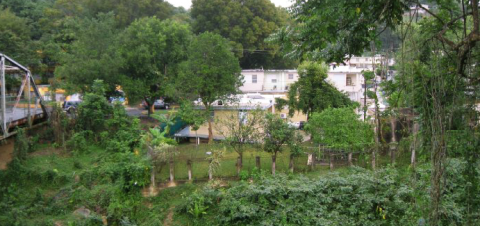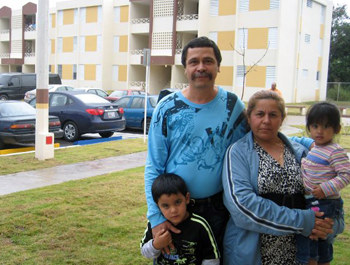Image

Stuart J. Mitchell, President and CEO, PathStone Corporation
Challenge: To rebuild deteriorating housing and employment opportunities in Puerto Rico's Route 123 Heritage Area, amid a crumbling infrastructure and shrinking tax base that have crippled the ability of local governments to meet needs.
The latest U.S. Census survey pegged Puerto Rico's poverty rate at 44.9 percent and the current unemployment rate on the island is 16.5 percent. A lingering recession and out-migration of its people is undermining the island's tax base and leaving an aging population in place.
The southwestern part of the island, particularly its many mountain communities, is plagued by some of the highest rates of poverty and unemployment. This area encompasses the Route 123 Heritage Area, which includes five communities along Puerto Rico's Route 123 and its network of roads that reach into more remote parts of the island.
One of Puerto Rico's oldest roads, Route 123 has been the region's main transportation route and commercial artery since the colonial period. It connects the south-central city of Ponce on the Caribbean Sea to the northern city of Arecibo on the Atlantic Ocean.
The Heritage Area's spectacular beauty, rich history and culture and its people's strong sense of entrepreneurship make it ripe for revitalization. But a crumbling infrastructure and an ever-shrinking tax base have crippled the ability of local governments to meet basic needs. PathStone wanted to help by building on the area's existing natural, cultural, historic and economic assets.
We developed a coordinated effort to address the lack of economic opportunity and deteriorating housing conditions with three principles in mind:
- Create communities with employment opportunities and decent, affordable, housing.
- Maximize use of the region's natural, cultural and economic assets.
- Bring innovative approaches to nurturing business and employment opportunities. Central to this strategy is the creation of an eco-tourism and agro-tourism industry centered on the area's coffee culture and the richness of the area's ecology.
 Beginning in 2010, we helped complete six housing developments totaling 127 units and created an estimated 244 direct and indirect jobs. We broke new ground with financing from USDA's Farm Labor Housing and Mutual Self-help Housing funds, as well as from the Federal Home Loan Bank System. In the last two-and-a-half years, 227 families have completed homebuyer education and 35 have bought homes. Total new investment from housing activities has been $28 million.
Beginning in 2010, we helped complete six housing developments totaling 127 units and created an estimated 244 direct and indirect jobs. We broke new ground with financing from USDA's Farm Labor Housing and Mutual Self-help Housing funds, as well as from the Federal Home Loan Bank System. In the last two-and-a-half years, 227 families have completed homebuyer education and 35 have bought homes. Total new investment from housing activities has been $28 million.In addition, as the first nonprofit in Puerto Rico to manage the Department of Labor's farmworker training program, PathStone has so far placed 60 adults and nine youths into full-time employment, a daunting task in the current economy.
PathStone has also facilitated 29 small- and micro-business loans in the region since 2013, valued at $805,611. We did so with help from micro-loan programs at the U.S. Small Business Administration, the U.S. Treasury Department and the USDA. In an unprecedented development, the Puerto Rico Planning Board has committed to match PathStone loans to regional businesses on a one-to-one basis. The first two loans have been approved and are being used by two coffee Haciendas to expand their hospitality and visitor facilities.
We also launched the Route 123 Tourism Trail, also referred to as The Coffee Trail, in partnership with Catholic University of Puerto Rico, the Massachusetts Institute of Technology (MIT), The Center for the New Economy, the Puerto Rico Tourism Company and the Puerto Rico Planning Board.
An aggressive outreach campaign, including a website about the trail and a 64-page trail guide, has begun to yield results: Over the past two years, PathStone-sponsored bike rallies in the mountain region have brought in approximately a thousand visitors. Hotels, restaurants, museums, ecological attractions and coffee haciendas along The Coffee Trail all report increasing visitors.
We've learned that the investment of attention, care and finance, seems to be paying off and that these communities will rise again.

